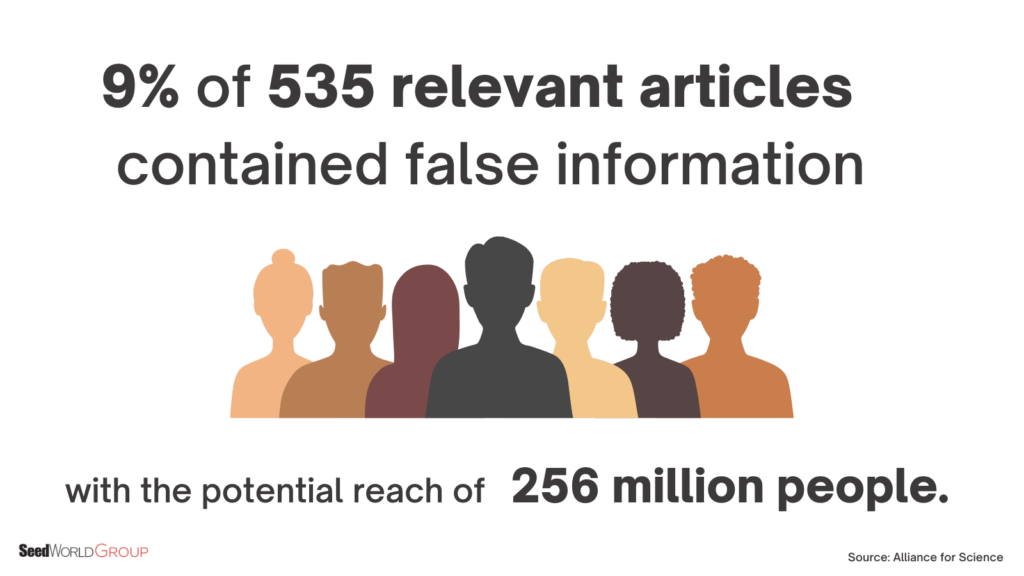More than a quarter of a billion people across the globe could have been exposed to misinformation surrounding genetically modified crops and foods, according to a study by Alliance for Science at the Boyce Thompson Institute in partnership with Cision Media.
The study investigated top English-language media throughout a two-year span, with stories published between January 2019 and January 2021. Each article was assessed for misinformation — statements that contradicted the scientific consensus for the safety of genetic engineering.
Research found that 47 of the 535 articles with GMO-related keywords consisted of misinformation.

This issue is particularly large in Africa. The study discovered that one-fifth of media coverage on genetically modified foods included misinformation, while media coverage in North America contained 5% and Europe had 7% when it came to false information.
In addition to regional tags, the study also conducted a sentiment analysis on the articles. Despite the majority of articles being categorized as ‘neutral,’ a large portion of the misinformation was determined to be a ‘negative’ tone. No articles analyzed with misinformation had a positive tone towards GMOs.
“Our results show that misinformation about GMOs is still a huge problem, and that hundreds of millions of people are being given false information that contradicts the scientific consensus on the safety of genetic engineering,” said Mark Lynas, lead author of the study and climate and research lead for Alliance for Science, in a release. “Make no mistake: misinformation about GMOs can be as harmful to society as misinformation on vaccines or climate change. The media must do better and stop publishing false claims on this subject spread by anti-science activists.”
The Impact of GMOs on Human Health
The most prominent category of misinformation surrounded human health. This category covers articles that include claims that “GMOs cause cancer or other health impacts without refutation, because such claims contradict a worldwide scientific consensus that food from genetically engineered crops is as safe as food from non-genetically engineered crops,” explained the release. Articles containing misinformation on GMOs relating to human health had the highest readership, reaching a potential of 139 million people.
“What is most worrying is that the problem of misinformation on GMOs is particularly acute in Africa, where it is harming the livelihoods of smallholder farmers by preventing them from accessing new crop varieties that are resistant to pests and to drought caused by climate change,” shared Sheila Ochugboju, executive director at Alliance for Science. “It is vital that the benefits of scientific innovation are not denied to people in the Global South.”
Alliance for Science plans to continue their work to combat misinformation through collaborations with partners such as the Open Forum for Agricultural Biotechnology in Africa (OFAB) and work from its Nairobi-based South Hub.
Related Articles:
Could A Spanish Study End Public GMO Arguments?
Label or Libel: What Do GMO Labels Really Do?
Why do GMOs Have an Image Problem? Watch This Week’s Episode











